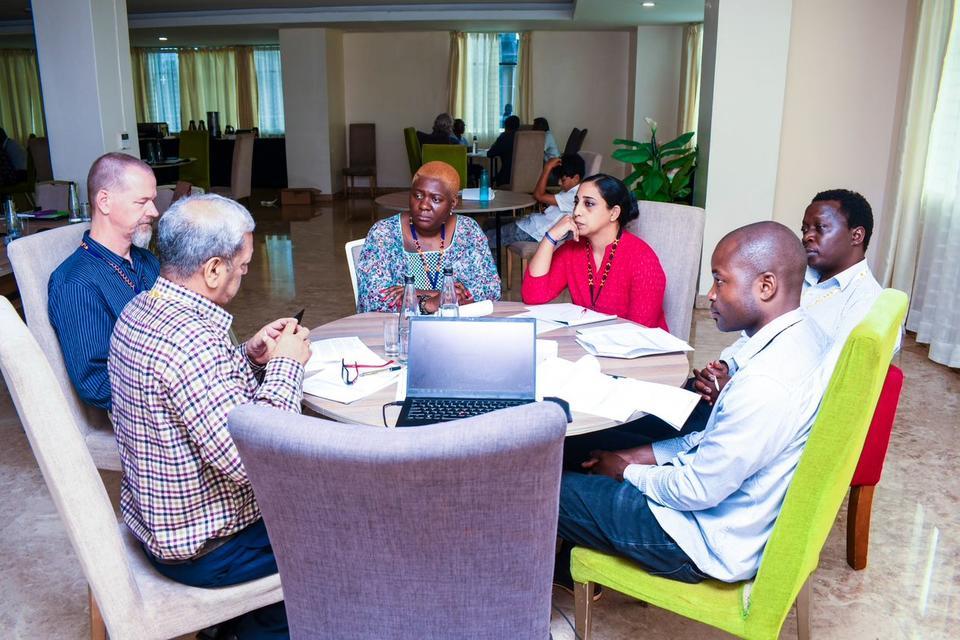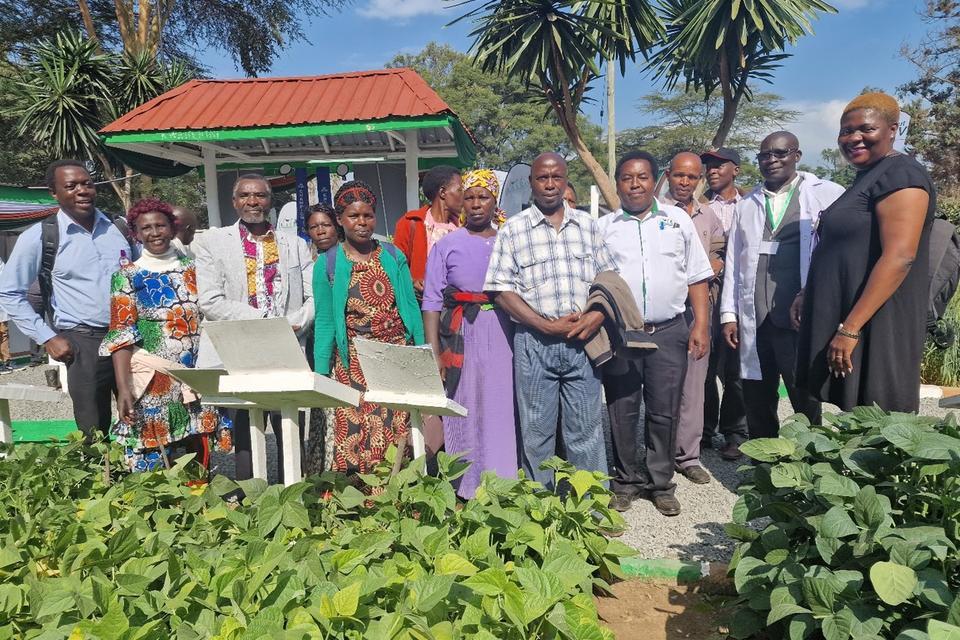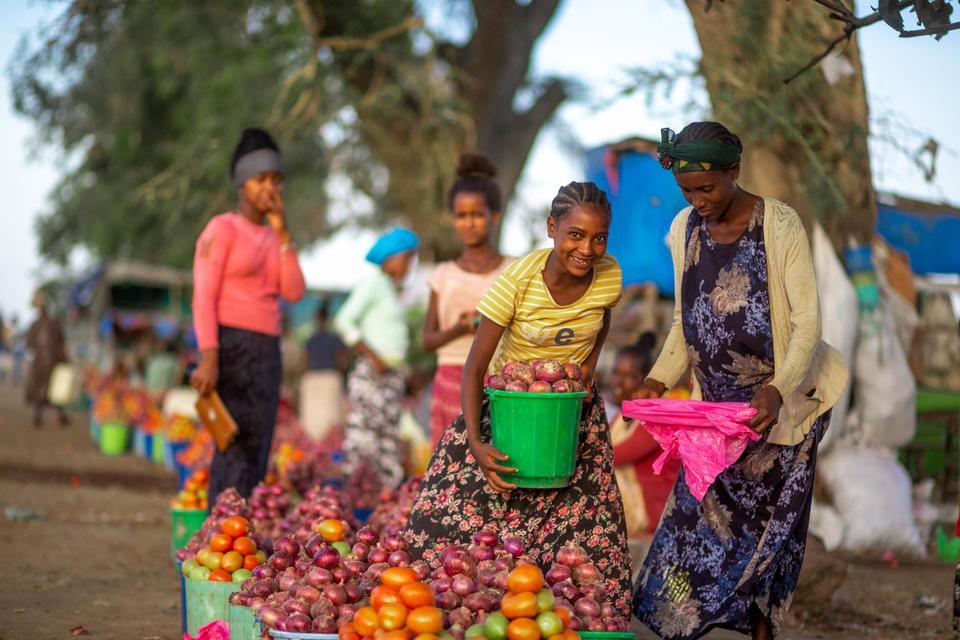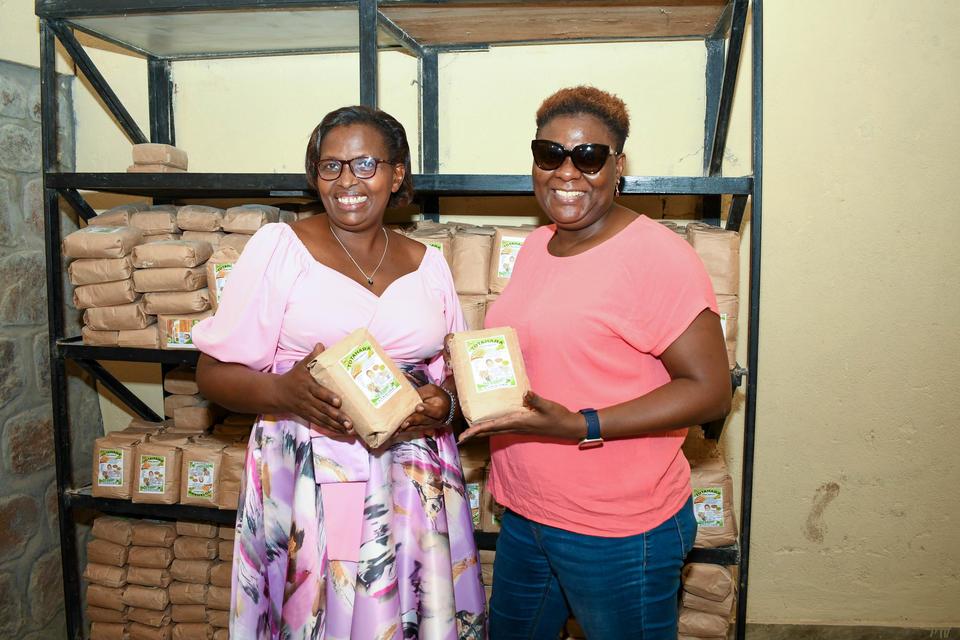Blog Co-designing Innovations that Work for Women: Lessons from Learning Labs in Kenya
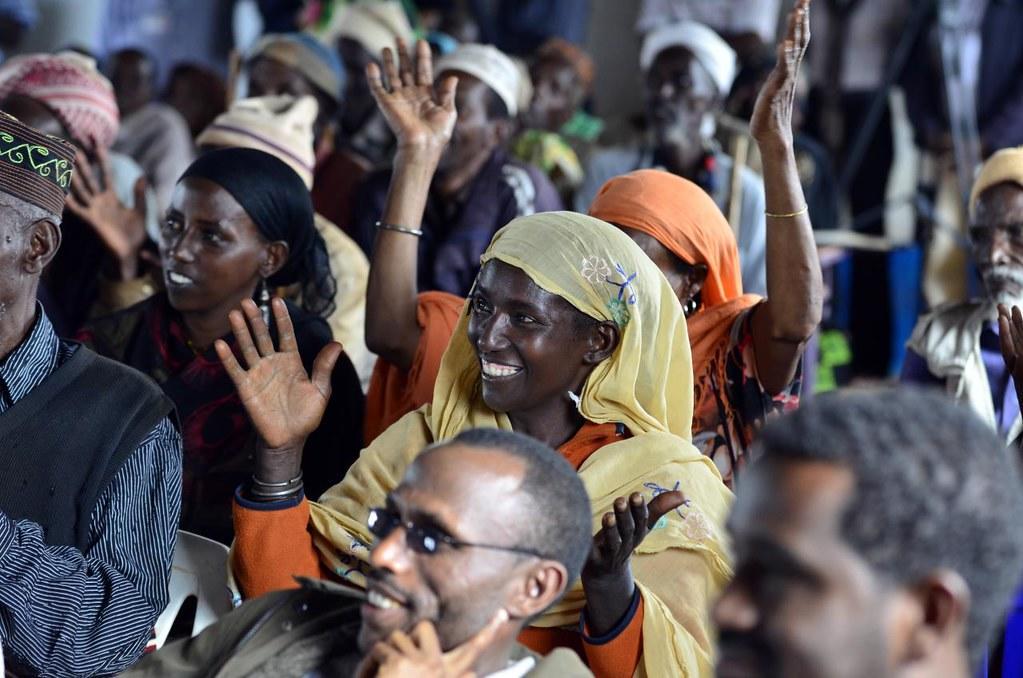
How can agricultural innovation be a powerful conduit for reducing gender inequity while increasing productivity, income and nutrition?
By: Lutomia Cosmas and Eileen Nchanji
For the last two years, the CGIAR Research Initiatives Gender Equality (HER+) and Ukama Ustawi (UU) have been driving the inclusive uptake of climate-adaptive technologies in the agri-food system space in Kenya. Here we explore some of the results so far:
Empowering Women in Agriculture
Our collaborative research efforts lie in our commitment to gender equality and social inclusion. HER+ and UU recognize that empowering women farmers is not just about providing them with seeds and tools, but taking it one step ahead to involve them in processes that reshape the socio-economic and cultural landscapes in which they operate. Results from a study conducted from October to November 2023 showed that 29% of women have already replicated conservation agriculture (CA) practices on their individual farms after seeing community demonstration plots.
The intentional involvement of women farmers in initiative activities has inspired women’s active participation in decision-making processes related to agriculture, from the choice of crops to the adoption of conservation agriculture practices. The results show that 97% and 69% of women participating in HER+ and UU sociotechnical bundling activities jointly and solely decide which crops to grow and CA practices to adopt on their farms. These results show that collaborative approaches not only empower women but also inspire a sense of shared responsibility and unity in pursuing agricultural endevours, which is a critical pathway towards inclusive decision-making. This demonstrates that HER+ and UU activities are breaking down traditional barriers that historically sidelined women in agricultural communities.
Bridging gaps through socio-technical innovation bundles
The HER+ initiative uses a socio-technical innovation bundling approach as a holistic methodology for inclusion. While bundling is not new, socio-technical innovation bundles (STIBs) are a more systematic way of integrating social innovations with technological and technical innovations to address context-specific multifaceted challenges facing women farmers. A near universal 98% of men and women farmers participating in HER+ and UU initiatives have adopted STIBs, with the proportion of women and men farmers using social innovations increasing by about 30-32% between 2018-2021 and between 2022 and 2023 compared to an increase of 6-11% among non-participating women and men non-UU farmers.
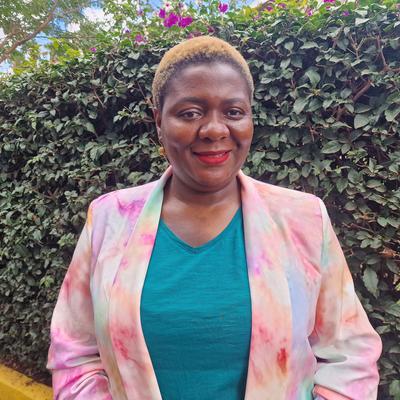
Nchanji Eileen Bogweh
Gender and Social Inclusion ExpertInclusive and Resilient Food Systems
STIBs adoption has led to notable improvements in yields, food security, and resilience. Results from the field show that equal proportions (77%) of men and women UU adopters STIBs had acceptable levels of food consumption compared to 56% of women and 52% of men UU non-adopters. These results indicate STIBs are associated with increased food consumption and reduction in gender disparities UU farmers also had higher resilience capacities – anticipative, absorptive, preventive, adaptive, and transformative – against climate change than non-UU farmers. Higher maize and bean productivity were harvested by UU farmers who adopted STIBs compared to UU non-STIBs adopters. These results show the tangible effect of HER+ and UU on inclusive resilience and food security.
Beyond the Farm
The HER+ initiative contributes to climate resilience and women’s empowerment through co-designing of STIBs with farmers, NGOs, private sector, NARS, and other CGIAR initiatives. We are using the learning labs as a pace to dialogue, reflect and relearn so our practices reflect farmers' reality. The collaboration between different stakeholders, including government bodies, private sector partners, and farmers themselves, highlights the collective effort required to forge a more inclusive world and also creates ownership and sustainability.
The achievements of UU and HER+ WP in Kenya are a clear testament towards inspiring inclusion on and off the farm. Our approach integrates and reimagines women as drivers of existing innovation frameworks. As we mark this important day and celebrate our achievements, we draw inspiration from the field in our advocacy efforts for inclusive practices in all sectors. Let the HER+ and UU journey and achievement inspire similar efforts and remind us of endless possibilities working together towards gender equality and inclusion.

